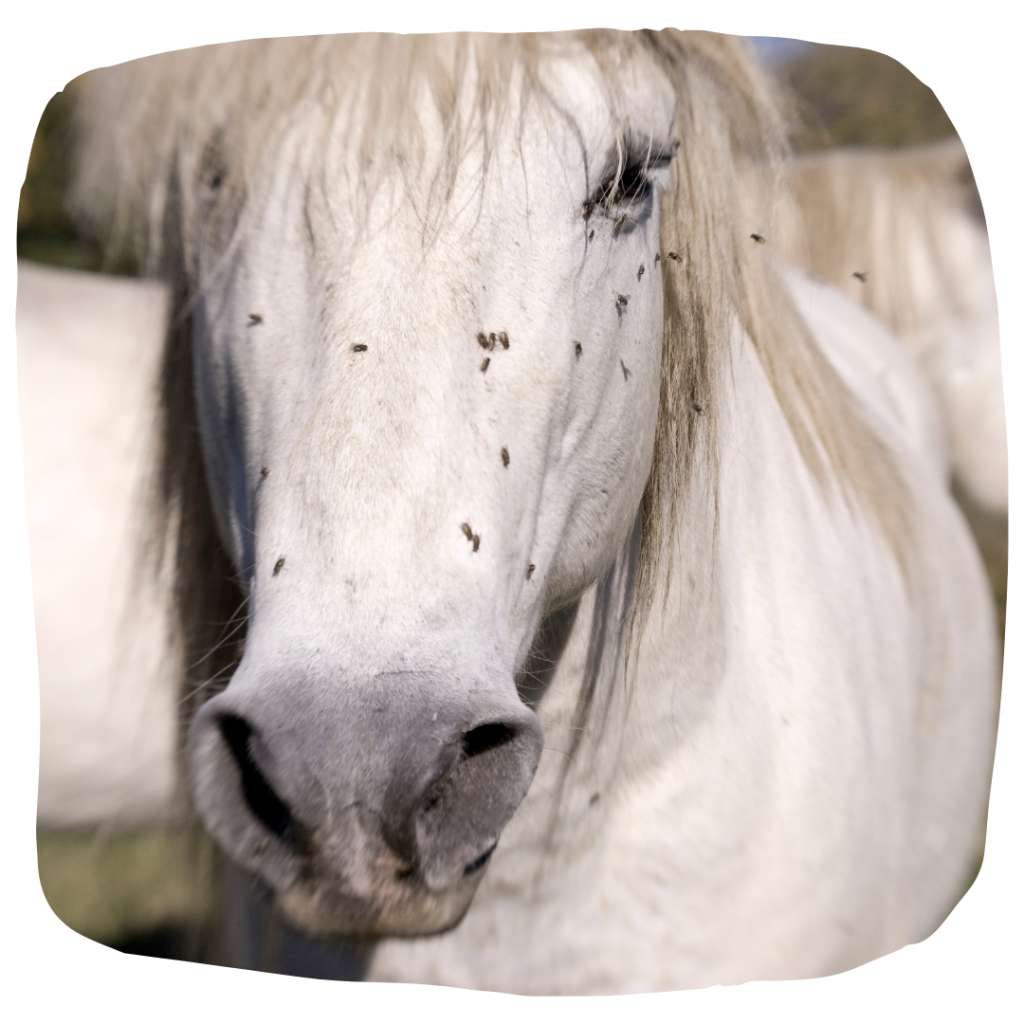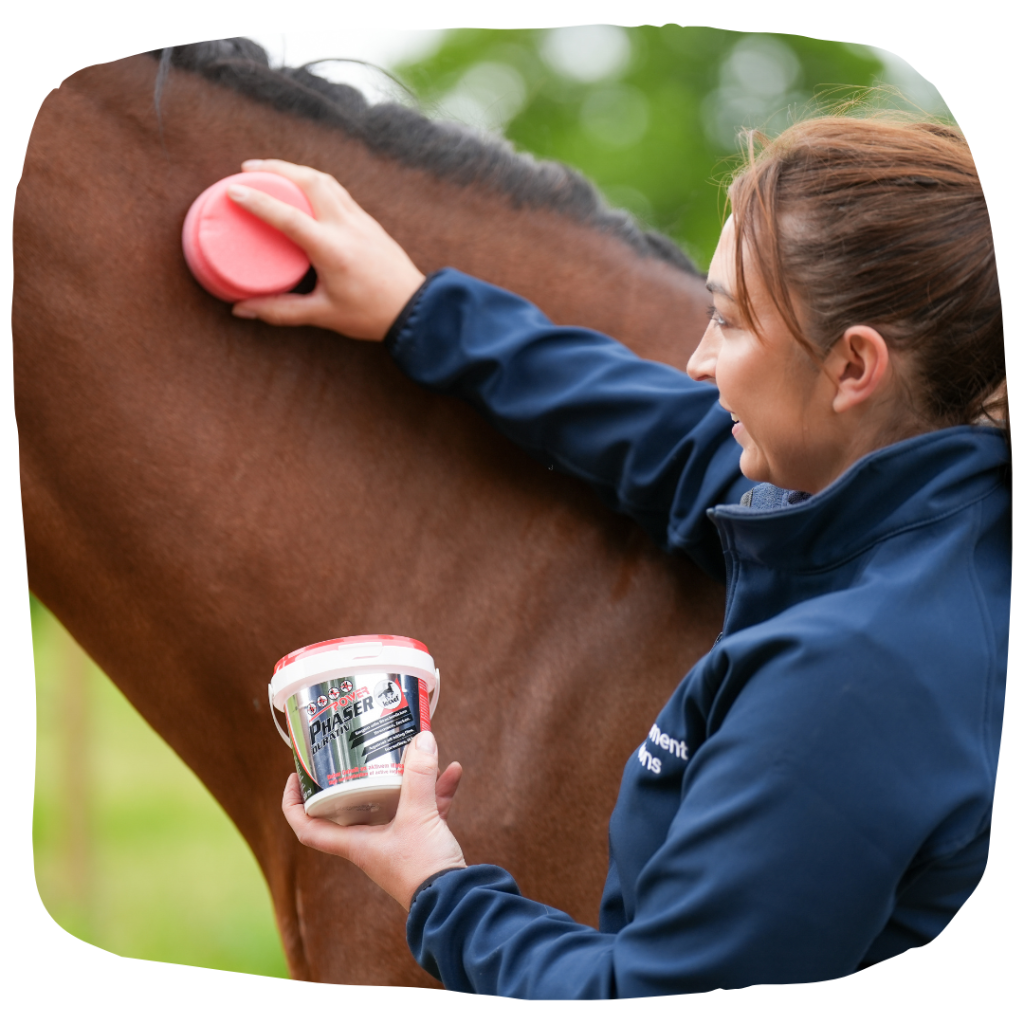Summer Solutions - Fly Control
We all look forward to the light nights and longer Summer days, hopefully with a bit more sunshine than there is rain! But Summer does come with a couple of struggles, us horse-folk know all too well! Firstly there are the flies. Not only are these little critters annoying, many also bite, resulting in itchy sores for both human and horse. Along with the potential stress caused by these insects, there is the risk of them transmitting a host of nasties such as bacteria, parasites and viruses, meaning we need to try and control them as best we can to try and prevent potential issues occurring.
What flies do we commonly experience in the UK?
When we talk about fly control for our horses, often the first types of fly that come to mind are various species of biting flies. These flies feed on blood and have the potential to cause allergic reactions, pain and spread diseases. Some of the common types of biting flies include; horseflies, midges, mosquitoes, stable flies and black flies. It is good practice to check your horse daily for any changes and common areas for fly eggs such as the legs and shoulders, all flies can lay larvae in the skin which may lead to fly strike and non-biting flies, which feed on bodily secretions can also transmit diseases.
Horseflies are one of the most common types of fly horse owners come across. Attracted to mammals for the protein found in mammalian blood, these flies require the protein to be able to re-produce. You may notice they are more attracted to horses with darker coats, this is because horse flies are attracted to polarised light reflected by darker skin and coats. To combat this, many horse owners use fly rugs which feature spots or stripes to try and deter the flies. However this is not the only aspect horse flies are attracted to, they are strongly attracted to the odor from sweat and urine. Notoriously known for their painful bite, horse flies have 6 stylets in their mouth parts, with the longest ones (used to anchor onto their victim) reaching around 2mm long. Like many biting flies their saliva contains compounds to promote bleeding and prevent clotting whilst they feed, but due to the discomfort of the bite the horse is triggered to knock the flies off, resulting in multiple bites and further pain.

Midges might possibly be the most annoying of all the biting flies. These tiny flies come in swarms and specifically bite around the mane, tail and belly of the horse. Not only is this an unpleasant experience, it can also cause more damaging effects in horses who may be allergic to their bites. Hypersensitivity to the saliva of midges can lead to allergic dermatitis, more commonly referred to as "sweet itch". When a horse experiences this they beginning to intensely rub or itch affected areas (most commonly the mane and tail), whilst sweet itch can range in severity, it is not uncommon to see horses suffering from patchy hair loss or in more sever cases raw and broken skin. Midges are often located in marshy areas or near water sources as they are poor fliers, some good management practices for the control of midges include stabling during times of increased activity (dawn and dusk), a fan outside the stable can help prevent them from entering and a well-fitted fly rug can help keep them away.

What can be done to help prevent flies?
While it is difficult to completely shield your horse from the presence of flies, due to the many different types and their individual preferences of environment and feeding regimes, there are some things horse owners can do to try and reduce the burden of flies:
- Keep the environment clean, removing the attractive smell of urine from stabling and clearing faeces away from both indoor and outdoor environments as many flies will use this as a breeding site.
- Physical barriers can be used such as fly masks or fly rugs. These help to deter flies with their patterns whilst also providing a physical barrier which may inhibit the flies from biting. It is key to remember that fly rugs and masks will only work properly if they are a good fit to ensure insects do not get round any gaps and they do not rub the horse.
- Routine management, try and stable your horse is necessary during times of high activity and keep your horse situated in an area where flies may be less active e.g. away from water sources, shade is provided to allow your horse to go away from bright areas where horse flies may be most active and in good airflow.
- Help keep flies away with the use of fly repelling products. There is a variety of different products available on the market from sprays to gel based formulas, there is bound to be something which suits your horse.
A couple of our favourites include:
Leovet's Tam Tam Vet, otherwise known as Fly-Be-Gone is made with all natural ingredients, the natural active substances from geranium oil and eucalyptus citriodora oil undertake homogenisation during manufacture which helps to increase the repelling effect and making the spray last up to 4 times longer. This natural fly repellent comes as an effective spray or an easy to apply intensive gel formula and is ideal for those looking for a more natural approach to fly control. We particularly like the gel for use in sensitive areas such as the head and neck.
Power Phaser is another choice, offering total protection against all insects and horse flies. The tried and tested Power Phaser formula gives seven hours of protection, even if your horse sweats, guaranteeing the stay-off effect is longer lasting. Available in a spray, durative gel or roll on formula, this is the ultimate go to for fly prevention.
- So, what is wormer resistance…... and what will we do when the wormers stop working? What does wormer resistance mean? The term ‘Wormer Resistance’ describes how parasites (worms within our horses) have evolved to be no longer affected by the chosen worming treatment and the active ingredient within that treatment. This hugely impacts and limits the effectiveness of the […]
- It is Time to Tackle Tapeworm!As we are heading into the Autumn months (apologies, we know it feels as though we missed Summer!) it is now time to start to look at our worming and testing for worms in our horses. At this time of year, and also Spring time, we look to test and/or treat for Tapeworm...
- Itchy Bum? It May Be Time To Test For PinwormWhat is pinworm?Concern about cases of pinworm (Oxyuris equi) in horses has been on the increase over the last few years. Although pinworm isn't a major health threat to your horse like other worms can be, infection can cause irritation. Sometimes that can be so severe that horses will rub themselves raw around their rear, hind legs, […]













